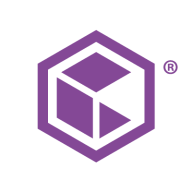

Commvault Cloud and Oracle Data Guard are leading data management and protection solutions. Oracle Data Guard seems to have the upper hand due to its comprehensive features despite a higher price.
Features: Commvault Cloud offers flexible data recovery options, scalability, and user-friendly interfaces. Oracle Data Guard is strong in data protection, real-time data replication, and a comprehensive feature set.
Room for Improvement: Commvault Cloud needs a more intuitive management experience, faster performance, and better integration capabilities. Oracle Data Guard could improve its initial setup process, documentation clarity, and user interface simplicity.
Ease of Deployment and Customer Service: Commvault Cloud is appreciated for straightforward deployment and responsive customer support. Oracle Data Guard involves a more complex deployment process and has mixed reviews on support efficiency.
Pricing and ROI: Commvault Cloud has a competitive setup cost and faster ROI, attracting budget-conscious users. Oracle Data Guard has a higher initial cost but is seen as a long-term investment with higher returns due to its robust capabilities.
At the pre-sale cycle, we have spocks aligned from Commvault with whom we get in touch, and they provide all the required support that we need.
The number of people who know Commvault Cloud is lesser compared to Veeam.
Customer support has very closed departments, requiring us to shuffle between them to get one thing done because representatives have limited accessibility.
Oracle has the best support and a great knowledge center with a lot of accessible material for users and administrators.
I have not faced any downtimes with Commvault Cloud.
Commvault Cloud is highly stable, and I would rate it a ten out of ten.
For the stability of Oracle Data Guard, I would rate it as the best.
I would like to see AI capabilities in Commvault Cloud.
I feel that the support is not yet up to the mark, with not enough professional engineers to provide assistance.
It could benefit from more automated features that notify via email if the disaster recovery or primary side fails.
Commvault Cloud is expensive, and there is room for the price to be 10-15 percent lower than what they are charging currently.
The simple Data Guard is free.
Other features include endpoint solutions, integration with Office 365, ransomware protection, archival for long-term retention, and no ingress or egress charges.
We can back up unlimited TBs due to our per node license.
The public cloud acts as a bigger solution for the on-premise while the on-premise acts as a DR for the public cloud workloads.
Active Data Guard is the most valuable feature. We use the secondary side for reporting purposes, which reduces the load on the primary side.
| Product | Market Share (%) |
|---|---|
| Commvault Cloud | 4.0% |
| Oracle Data Guard | 0.9% |
| Other | 95.1% |


| Company Size | Count |
|---|---|
| Small Business | 57 |
| Midsize Enterprise | 24 |
| Large Enterprise | 82 |
| Company Size | Count |
|---|---|
| Small Business | 7 |
| Midsize Enterprise | 4 |
| Large Enterprise | 22 |
Commvault Cloud is the ultimate cyber resilience platform built to meet the demands of the hybrid
enterprise. Beyond its core functionality of data backup and recovery across diverse workloads, including applications, databases, virtual machines, and files, Commvault Cloud stands out as a robust defense against ransomware. Going beyond backup, the platform integrates advanced data security features such as encryption, access control, and threat detection, safeguarding against unauthorized access and cyber threats.
With tools for data management, classification, and migration, businesses can optimize storage costs, enhance accessibility, and comply with regulations seamlessly. Boasting cloud integration with major providers like AWS, Azure, and Google Cloud, Commvault Cloud leverages the scalability and flexibility of the cloud for comprehensive data protection and management. The platform's automation capabilities streamline tasks, and its reporting and analytics features provide valuable insights into data usage, potential risks, and optimization strategies. Commvault Cloud is not just a security tool; it is a key component of cyber resilience, enabling organizations to not only protect against cyberattacks but also recover swiftly and minimize the impact of incidents. Elevate your cyber resilience strategy with Commvault Cloud.
Oracle Data Guard ensures high availability, data protection, and disaster recovery for enterprise data. Data Guard provides a comprehensive set of services that create, maintain, manage, and monitor one or more standby databases to enable production Oracle databases to survive disasters and data corruptions. Data Guard can be used with traditional backup, restoration, and cluster techniques to provide a high level of data protection and data availability.
We monitor all Backup and Recovery reviews to prevent fraudulent reviews and keep review quality high. We do not post reviews by company employees or direct competitors. We validate each review for authenticity via cross-reference with LinkedIn, and personal follow-up with the reviewer when necessary.